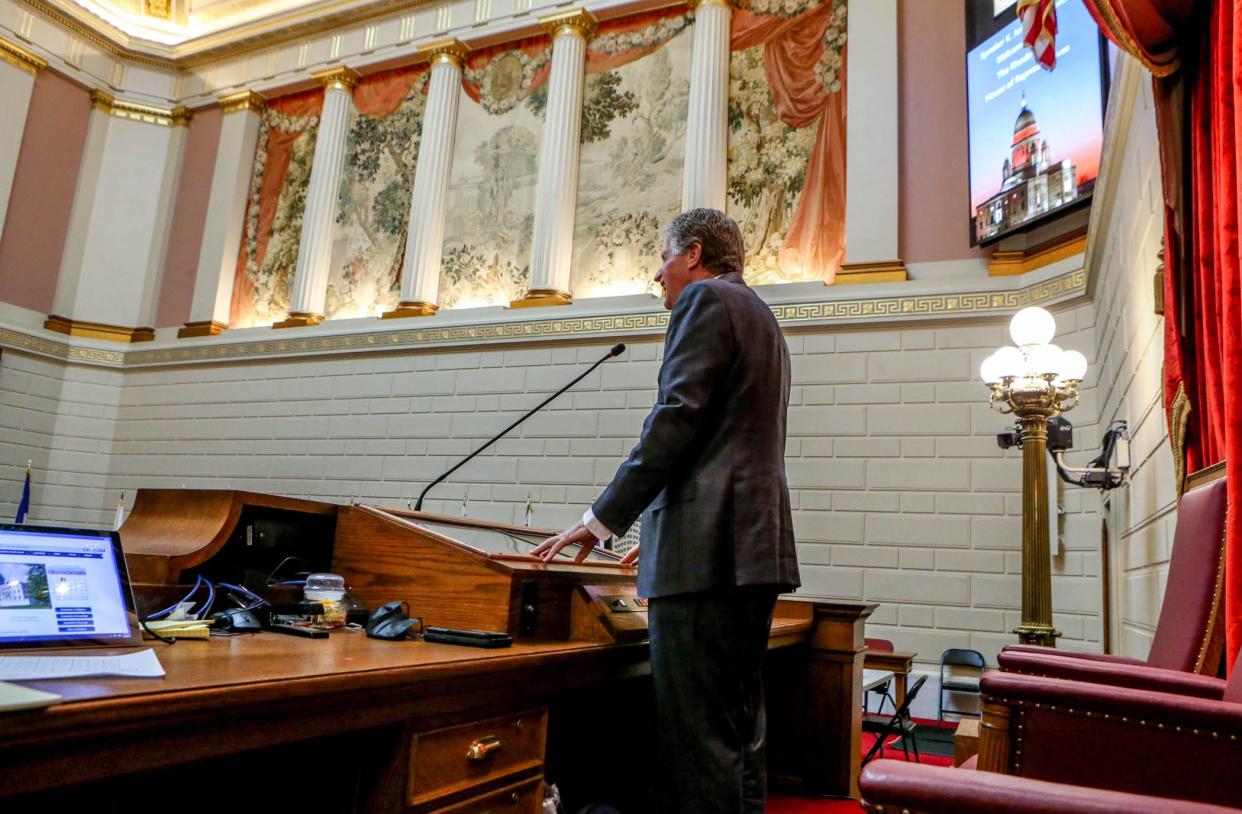McKee gives nursing homes a break from minimum-staffing law

A new law that would have fined nursing homes that don't comply with minimum staffing requirements won't go into effect for another month.
Gov. Dan McKee issued an executive order on Friday that delays the law from going into effect until at least Feb. 14. The law was supposed to be effective Jan. 1, but nursing homes had warned that they would be unable to meet the requirements and were already dealing with staffing shortages.
As of November, close to 2,000 positions were vacant in nursing homes across the state, according to the Rhode Island Health Care Association and Leading Age Rhode Island.
The Nursing Home Staffing and Quality Care Act passed by the General Assembly in 2021 requires nursing home residents to receive an average of about 3.58 hours of direct care per day, and was expected to give Rhode Island the highest staff-to-patient ratio in the country.
"Nursing home facilities across Rhode Island, and the country, are facing unprecedented staffing challenges and financial instabilities exacerbated by COVID-19 – challenges that could not have been foreseen to this degree," McKee spokeswoman Alana O'Hare said in a statement. "The temporary flexibility provided by this Executive Order will allow nursing home facilities additional time to hire staff while continuing to provide the appropriate level of care to residents."
O'Hare said that the order would ensure that nursing homes "are not put in the position of reducing the number of residents in their facility to comply with the minimum staffing ratio."
In a joint statement, House Speaker K. Joseph Shekarchi and Senate President Dominick J. Ruggerio expressed displeasure with the move.
“The nursing home staffing legislation enacted last year is critical to ensuring adequate care for residents,” the statement says. “We were not consulted prior to today’s issuance of the executive order. Upon initial review, it appears that this executive order far exceeds the scope of last year’s legislation by also suspending vital [Centers for Medicare and Medicaid Services] staffing requirements for registered nurses.”
Industry organizations had asked McKee for a one-year moratorium on the law, saying it could lead to millions in fines and force facilities to close.
“This pause is greatly appreciated, but a long-term solution is necessary,” John Gage, the president of the Rhode Island Health Care Association, wrote in an email. “The staffing statute did not provide sufficient funding for nursing facilities to comply. In fact, as passed, it represents a $47,000,000.00/year unfunded mandate when fully implemented.”
Gage said that nursing homes statewide would need to hire 2,500 new workers to comply with the mandate, “and there simply are no applicants.”
The organization believes that the law “needs to be delayed for a minimum of one year or until such time that the workforce stabilizes, and there are sufficient applicants available,” he said.
McKee has the option to renew the executive order past the Feb. 14 deadline.
This article originally appeared on The Providence Journal: McKee delays Rhode Island nursing home staffing law until February

